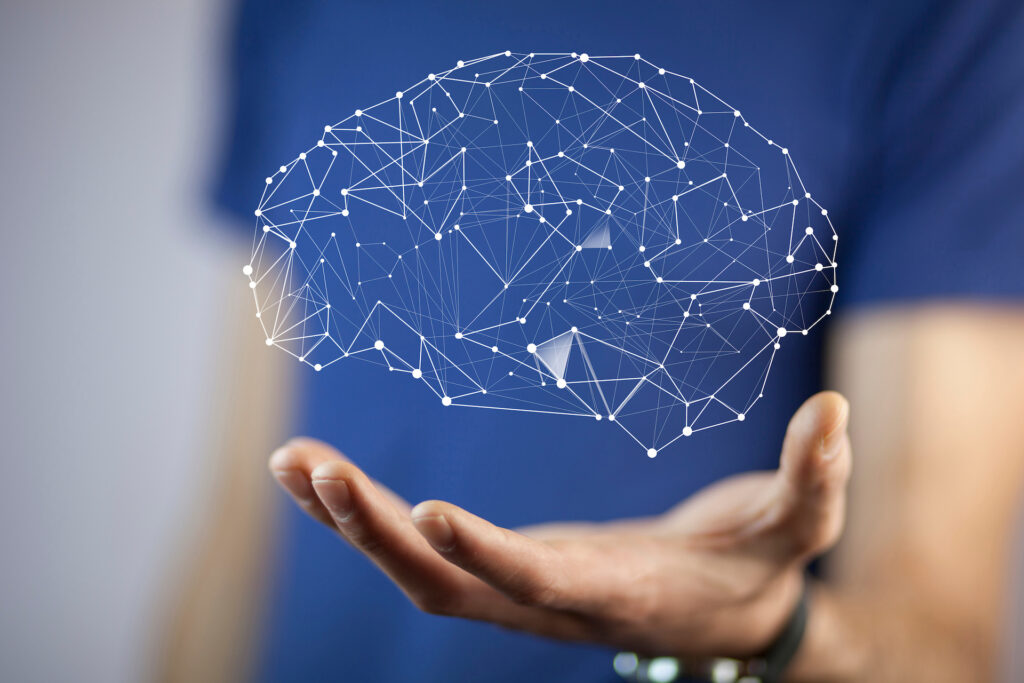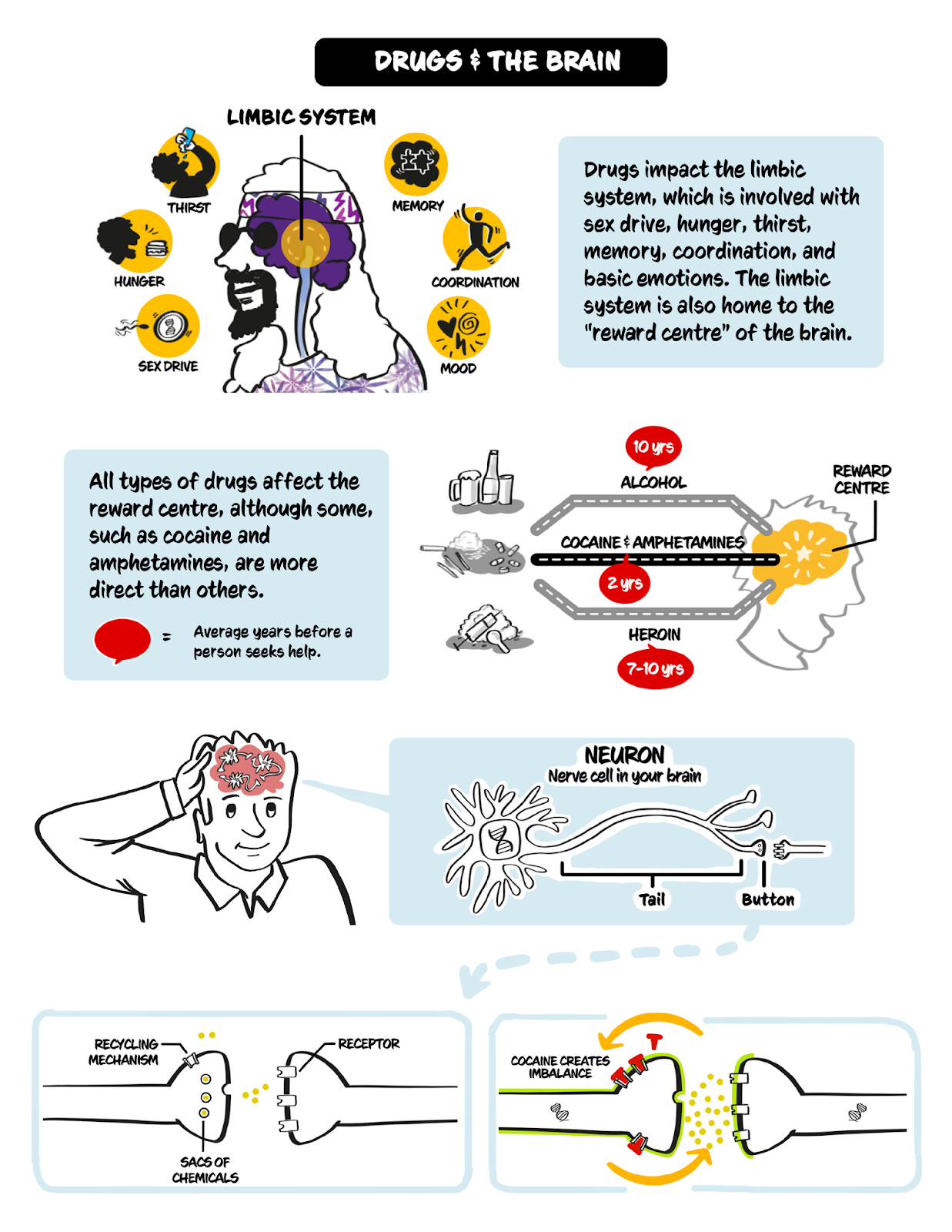We talk about drugs a lot in recovery. The different types of substances, their effects, the sociocultural components of drug use… But in all of this, it’s easy to forget something fundamental about the nature of substance use—a simple truth that is often left out of the equation.
Drugs don’t get you high… your brain is getting you high.
Please allow us to explain.
The Brain’s Intricate Balance
Our brains are intricate networks of neurons (brain nerve cells) which are constantly exchanging chemical signals. In order to regulate our emotions, behaviours, and perceptions, the brain is always moving towards a sort of balance, or homeostasis. At times, our brains experience higher levels of certain neurotransmitters, such as dopamine, serotonin, and endorphins. All of which can be triggered by stimuli such as exercise, novel experiences, preferred activities, etc. These natural feel-good chemicals are key to our overall well-being and are a part of the brain’s regular function. They are useful in rewarding us for positive experiences, alleviating pain, and are even key to our ability to learn.

However, given the brain’s need for balance, the neurotransmitters that are released as part of normal brain function need to be cleaned up on an ongoing basis as well. A class of proteins on our brain’s nerve cells known as transport proteins pick up stray neurotransmitters and recycle them back into the cell for reuse. This recycling mechanism plays a crucial role in preventing an overload of neurotransmitters and in keeping the brain from getting overwhelmed by excessive chemical activity.
Drugs Clog Up Our Brain’s Recycling Mechanisms
Many of the substances we consider psychoactive—cocaine, alcohol, heroin—affect our brain chemistry in the same specific way. They interfere with the brain’s recycling processes. By binding to transporter proteins or surrounding structures, they disrupt the natural reabsorption of neurotransmitters, leading to an accumulation of these chemicals in the brain’s synapses. As a result, the brain becomes flooded with dopamine, serotonin, or other neurotransmitters, creating the experience of being high.
In other words, you’re not getting high on the drug floating around your brain… you’re getting high on your brain’s backed-up recycling!
In a workshop with Geoff Thompson, Ph.D., Program Director at Sunshine Coast Health Center, Geoff talks about the biomechanics of a cocaine high in more depth to drive the concept home.
“When you take cocaine, what is actually getting you intoxicated is not the cocaine… It’s actually the dopamine stimulating the receptors more than normal. The cocaine is just the vehicle that allows your own brain to get you intoxicated. It’s not the cocaine that’s getting you high, it’s all this stimulation on the receptors… It’s pretty boring, actually!”

Are Drugs Really That Interesting?
When we look at drugs as simply a vehicle for your brain to get intoxicated on its own chemistry, they suddenly feel a whole lot less sexy. This perspective also gives us some insight into how behaviours can be seen as addictions as well.
“You could understand why people would consider problem gambling as an addiction,” says Dr. Thompson, “because with gambling you’re not even taking a chemical into your brain, right? You’re just doing a behaviour but it’s the same principle… it’s an overload of this stimulation on the receptors.”
What Does This Mean Long-Term?
The effects of substances on the brain’s recycling mechanisms can have long-lasting effects, such as the shut-down of the chemical pathways that produce the neurotransmitters we need for regular brain function. As a consequence, individuals may require higher doses of a given substance to achieve the same effects, increasing their risk of addiction or problematic substance use.
When substance use is stopped or halted, the brain goes into withdrawal. First, medical withdrawal, and later, what is called post-acute withdrawal. We will explore both of these types of withdrawal in future posts.
What individuals living with addiction (and the people who care about them) need to understand is that in almost every case, the brain is able to go back to a balance after substance use has stopped. Here, it’s important to note that we do not recommend stopping “cold turkey”. Rather, treatment and recovery take time, work, and support. But remember: the brain possesses remarkable resilience and has the potential to heal when given the chance to recover from addiction.
Start Your Recovery at Sunshine Coast Health Centre
Ending cycles of problematic substance use requires a comprehensive and individualized approach. At SCHC & GSWC, we provide a nurturing environment where individuals can benefit from various therapies to support their treatment and recovery. This includes Cognitive-Behavioural Therapy (CBT), Dialectical Behavior Therapy (DBT), group counselling, holistic approaches, practical resources, and individualized care.
If you or anyone you know is looking for support with addiction and mental health, please reach out today.



